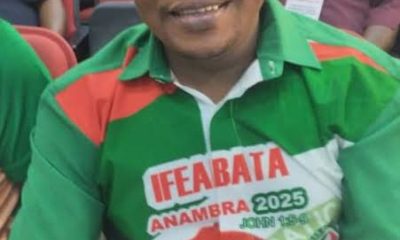Opinion
Did Yagba Federal Constituency Rotation Arrangement End in 2011?
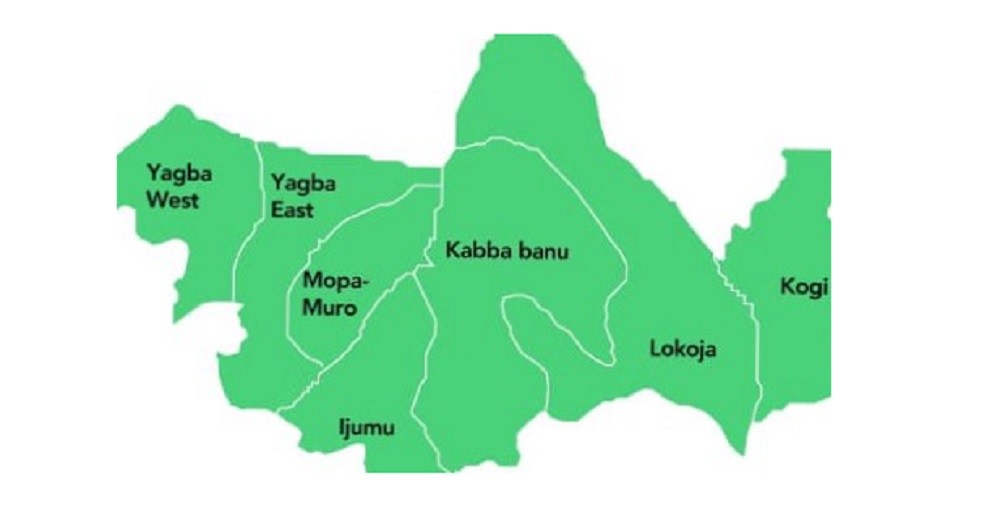
By Debo Alabi
Yagba Federal Constituency in the western Kogi senatorial zone, consists of three local councils, namely Mopamuro, Yagba East and Yagba West. In 1999, at the outset of the Fourth Republic political dispensation in Nigeria, each of the three local government areas fielded aspirants for the seat. The Peoples Democratic Party, (PDP), the dominant political association at the time, guaranteed success for its flagbearers. In the run-up to the 1999 polls, all eyes were on the PDP primaries. Shola Ojo, (Mopamuro); Tolorunjuwon Joseph Faniyi (Yagba East), Engr Sunday Karimi and Mrs Margret Orebiyi, (Yagba West) were the frontrunning aspirants. Orebiyi would later step down for Karimi. Despite the superior strength of Yagba West, which consists of 14 electoral wards, four more than Mopamuro and Yagba East with 10 electoral wards apiece, the PDP ticket was eventually decided in favour of Ojo (Mopamuro).
Ojo’s emegence was more of a consensus in an arrangement superintended by party elders under the leadership of the respected patriarch and one of the founding fathers of PDP in Nigeria, the late Chief Sunday Awoniyi. Aspirants from the two other local government areas were prevailed upon by the elders to await their turns in subsequent electoral cycles. Meanwhile, Yagba West fielded a candidate for the 1999 election in the late legal icon, Chief Tunji Arosanyin who was the flagbearer of the defunct All Peoples Party (APP). Ojo, also an attorney, hitherto domiciled in Kano, the formidable hub of commerce in northern Nigeria, went on to win the general election of that year.
Ojo served in the “Green Chamber” from 1999 to 2003. At that time, PDP’s internal, mutual understanding based on the rotation principle expressly asserted that each LGA would serve just one term, after which the position would rotate to another. Contestants for the 2003 PDP ticket included Karimi, Faniyi, Mrs Funmi Abiodun, a lawyer; the Port Harcourt based quantity surveyor and expert in the Marine sector, Bode Olorunsola and J.K Odeyemi, an engineer. The primary election was headed for a runoff between Faniyi and Karimi, but, again, the elders in their wisdom settled for a simple majority. Faniyi picked PDP ticket and he went on to defeat his opponent in the reconfigured APP, which had then become the All Nigeria People’s Party, (ANPP), Mrs Justina Abanida. Abanida, a one time Commissioner for Justice and Attorney General. Abanida, a lawyer, hails from Egbe, Yagba West Council.
For Karimi, the waiting game continued even when the seat berthed in Yagba West. Karimi lost PDP’s ticket to a fellow Yagba West opponent, Samuel Bamidele Aro.. Aro, a successful oil marketer, won the 2007 election into the House of Representatives, which took place on April 21, 2007. He defeated Bolaji Oluwafemi of the defunct Action Congress (AC) and served in the lower parliament until 2011.
The extant rotational arrangement forbade Mopamuro and Yagba East from fielding candidates for the 2007 election. In fairness to the past occupants of the seat, performance was not a yardstick for continuity. Based on the extant zoning template of the PDP, the baton was expected to be passed back to Mopamuro in 2011. However, at the conclusion of his first term in 2011, Aro, the incumbent declared his intention for a second term. Backed by the Kogi State governor at the time, Ibrahim Idris and machinery of the ruling party at the state level, Aro defeated his lone challenger for the PDP ticket, Chief Folorunsho Daniyan, (from Mopamuro). However, the outcome of 2011 primary election that threw up Aro did not sit well with the factional PDP who beckoned on Karimi to step forward in another political party.
Karimi’s name was a last-minute inclusion in the portal of the Independent National Electoral Commission (INEC) as the candidate of Action Congress of Nigeria (ACN). In what turned out a historic protest vote, Karimi defeated PDP’s Aro in the general election held on April 9th, 2011. The strength of the PDP had been further decimated in the aftermath of the controversies that trailed its primaries. Daniyan left PDP and flew the flag of the ANPP. He came third in the general election. For the first time, in 2011, Mopamuro, Yagba West and Yagba East all fielded candidates for the House of Representatives.
The 2011 episode effectively marked the fatal end to one term and rotation of the seat in Yagba Federal Constituency.
Highlights
Karimi got the mandate of Yagba people to represent them in 2011 when he did not aspire for it from the start to the race and when it was supposed to be the turn of Mopamuro. He was not even on the list of aspirants jostling for the much-sought ticket of the PDP in that year’s primaries. He also became the first Yagba man to be reelected, thereby setting the precedence for continuity.
As the sitting Rep, Karimi (Yagba West) returned to his old party (PDP) and sought re-election in 2015. He picked the PDP ticket ahead of Kano based business tycoon, Leke Abejide (Yagba East) and successful civil engineer, Dele Obiniyi (Yagba East).
Karimi went on to win the parliamentary election held on March 28, 2015. He defeated Ganiyu Salaudeen of the Accord Party (AP/Yagba East), Kayode Adegbayo (APC/Yagba East), and Joseph Blessing of the Labour Party (LP/Mopamuro). Note again that all three LGAs fielded candidates in 2015.
Subsequently, Karimi’s record was equalled by Leke Abejide (Yagba East), now on his second term. His back-to-back victory in the 2019 and 2023 elections were achieved under the platform of lesser known African Democratic Congress (ADC).
Instructively, to further butress the point that rotation may have become a thing of the past, Abejide’s victories in both elections were far from a walkover, not for him, not for Yagba East. With the exception of Yagba West, the 2019 edition was keenly contested by aspirants from Mopamuro and Yagba East. A total of 15 candidates registered with the Independent National Electoral Commission (INEC) to contest in the 2019 election. ADC candidate, Abejide won the election, defeating APC’s Henry Abimbola (Mopamuro), PDP’s Fabola James (Yagba East), SDP’s Oluwafemi Iselaiye (Yagba East) and 12 other candidates from Mopamuro and Yagba East. The list of candidates and their parties for the 2019 polls are as follows: Adebayo Kenneth (PPC); Oluropo Odofin Augustine (MPN); Jonathan Ayokunle Olushola (ACCORD): Balogun Blessing Olumayowa (APM); Somidire Comfort (ACPN); Atteh Oladimeji (PPN); Yusuf Mary Oluwatoyin (DA); Isah Saidu (LP); Omowaiye Ete A. (UPP); Omole David Bolorundoro (UPC) and Abdurafiu Ismail (PT).
The all-commers scenario was again replayed in 2023 when Abejide (ADC/Yagba East) ran against Folorunsho Olafemi (APC/Mopamuro), Joseph Faniyi (PDP/Yagba East).and Jeremiah Oladokun (APGA/Yagba East). The list incuded Alonge Victor Oluwabusayo (Accord), Adekunle Komolafe (NNPP), Bamigboye Sunday (ADP), Musa Lasisi (Action Alliance), Jethro Olusegun Solomon (SDP) and Obiniyi Bamidele (YPP).
Rotation Can Only Be By Negotiation, Not Entitlement Claim
Ahead of the 2027 election, a notable Yagba political figure who preferred anonymity due to the sensitive nature of the debate on the continuity of rotation representation told our reporter that based on the foregoing, if at all there would be further adherence to rotation, “it can only be by negotiation, not by entitlement claim”.
He said: “The rotational arrangement for the HOR election in Yagbaland has been a straightforward and adaptable practice since inception. This arrangement was designed to give each local government in the federal constituency a fair opportunity. The Yagba federal constituency comprises three local government areas: Yagba West, Yagba East, and Mopamuro. Historically, Mopamuro was the first local government to benefit from this arrangement in 1999 with Hon. Sola Ojo, followed by Yagba East with Hon. T.J. Faniyi in 2003. In 2007, Hon. Sam Aro benefited from the rotation, and in 2011, it was Yagba West’s turn again with Hon. Sunday Karimi, who served two terms. This two-term pattern continued with Hon. Leke Abejide from Yagba East in 2019, who is currently serving his second term. Ideally, after Hon. Leke Abejide’s second term, Mopamuro local government should be the next to benefit from the rotation and to spend their two terms. However, Mopamuro’s inconsistent adherence to the rotation has been a significant constraint.
In the last two elections, Mopamuro fielded candidates against Hon. Leke Abejide, which was unfortunate as their action demonstrated their disregard for the rotation. Mr Tuesday Abimbola and Engr Folorunsho Olafemi contested twice with Leke Abejide. If they had won, it would have also conflicted the entire process. As an experienced political figure in Yagba federal constituency, I cautioned Mopamuro aspirants to respect the rotation and not contest against Yagba East candidates. Unfortunately, my warnings were ignored, and Mopamuro’s actions have put them at a disadvantage. If Mopamuro had respected the rotation and not contested against Yagba East in the last two elections, it would have been incumbent on Yagba East not to run against them. However, since Mopamuro did contest, Yagba East’s potential third term would alter the rotation cycle, making Yagba West eligible to contest after Yagba East.
It will take a proper consultation and a United front from Mopamuro to sustain their alliance with the rotation which they had kicked against”.
As it were, from the viewpoints of public affairs analysts and political pundits, Mopamuro has held the seat one-term of four years since 1999, Yagba West had 3 terms of 12 years and Yagba East two terms of eight years. From the foregoing, Mopamuro’s agitation to have the 2027 HOR seat is not out of order. The point has also been made for the entrenchment of fairness and equity as well as the sustenance of unity within the region. One can not also rule out the fact that, with the exception of 2003 election, Mopamuro has consistently fielded candidates against candidates from Yagba West and Yagba East.
Twice in 2019 and 2023, the ruling APC conceded its tickets to Mopamuro. Both chances were lost more to internal divisions within the local government. Power is not given; it is taken. The bottomline is that 2027 election doesn’t look like one to be determined by entitlement. Rotation is achievable only by negotiation. Rotation is not a law. Mopamuro must work hard for it, speak with one voice, and present a formidable candidate, as a prerequisite for negotiation.
Effective Representation As a Factor
While the idea of rotation may seem appealing, the performance of the sitting member and the capacity to drive meaningful development and growth are key factors in effective representation, which should not be overlooked going into the 2027 election. Rotation may seem like a fair and equitable approach, but the electorate is also aware it can lead to a lack of continuity and consistency in representation. This also can result in a lack of accountability, as representatives may not feel compelled to deliver on their promises. Furthermore, rotation can lead to a focus on short-term gains rather than long-term development. Again, anyone thinking of running against an incumbent must make a careful examination of whether it can be done.
In the modern-day election pattern in Nigeria, incumbents win elections about 85 percent. An entrenched incumbent is even harder to beat than a more recently elected one. Here are some factors to consider before going into the decision of whether a challenge could be successful. The first step is to consider the overall political environment and the general mood of the electorate. Generally, there are two things that should worry incumbents.
One is whether the electorate perceives that things are on the right track. The other is whether the electorate thinks the incumbent care about them. For any sitting representative who receives favourable ratings from his people—based on these two factors—it will require an out-of
-this-world strategy for any successful challenge to happen.
● Debo Alabi, a public affairs analyst and native of Yagba, writes from Lekki, Lagos
Opinion
INSPIRING TAKEWAYS AT TUNDE OLUSUNLE’S DIAMOND SOIREE
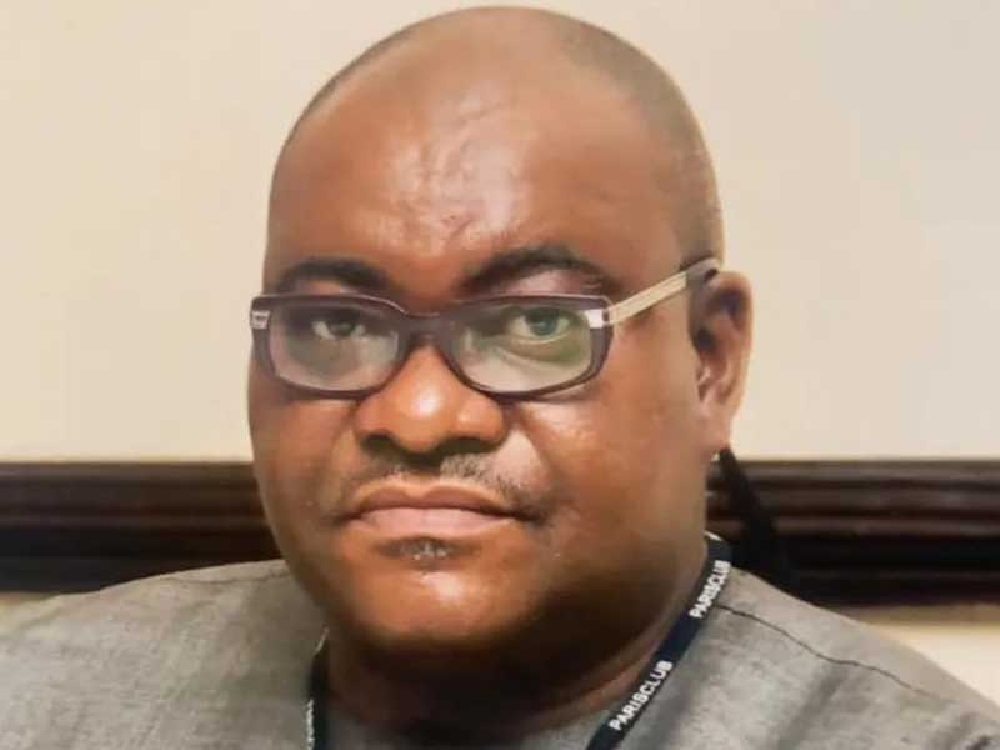
BY BOLAJI AFOLABI
Oftentimes, it’s always challenging to organize commemorative parties for those who have distinctions in this pastime. Dr. Tunde Olusunle, Adjunct Professor of Creative Writing at the University of Abuja; recently re-named Yakubu Gowon University is one of the few masters in the game. Over the last two decades of close relationship with him, he has played massive roles in organizing parties for people. Call him a highly-rated events planner, you may not be wrong. He is not the usual, typical party planner around who has taken up the vocation as business. Olusunle does this for people dear to him; friends, bosses, colleagues, associations, communities, and more pro bono. At any of these occasions, he throws everything towards making the event successful. He invests his time, intellect, organisational savvy, and personal resources; months, weeks, and days to make the event grandiose. Some of his close friends eulogized his dexterity, expertise, and capacities in single-handedly coordinating parties, events, and other celebrations.
The writer, cognisant that Olusunle will mark his birthday in the month of March, was somewhat worried. Why? This year’s birthday was different, as the multi-tasking professional will climb “six stairs” and join the unique club of 60. So, who will coordinate a befitting birthday shindig for the “master organizer?” Can such match the quality of similar others that Babaeto; one of his titles, and moniker loosely translated as “Chief Organizer” has arranged for people? How can the standard set by him be met, if not surpassed? Still pondering, a thought came to mind. Given the national economic crisis that has led to accentuating poverty, staggering hyperinflation, disabling unemployment, corrosive hunger, and more, Olusunle; who is ever conscious of situations around him, may spring surprises. He may opt for simpler and modest celebrations.
About two weeks to d-day, an e-invite forwarded to the writer confirmed one’s thought. The card was beautiful in colours; aesthetic in design; and unique in words. Having close similarities with Babaeto’s imprimatur, it read, “please join us for drinks, bites, and laughter as we commemorate the Diamond Birthday of our father, husband, brother, and good friend; Tunde Olusunle ……” Further checks confirmed that the event was packaged by Dr. Funmi Olusunle, with Aramide, Yomi, and Tobi; wife and children of Babaeto was to be a modest gathering of people. On this, the “plotters” scored a bull’s eye. Surely, Olusunle will be excited that his ever-loving, dependable, and reliable better-half of over three decades, and scions are gradually “edging him out” in the plotting, planning, and execution of numerous surprise parties for people.
The weather on Sunday, March 30 was clement and friendly, away from the scorching sun of the previous day. This was the first surprise while heading to the event. Driving through the Gaduwa-Lokongoma axis of the capital city, the writer had another round of pleasant surprises. Making a detour, vehicular movements to the Estate gate; which was over 400 meters away, gave an idea of what to expect. After “snaking and snailing” through the entrance, which was about 100 meters to the residence, it became clear, and evident that this may not be a small event, as originally planned. The writer, struggling for a comfortable parking space, recalled what Pastor Tumo Ojelabi; a retired Director, Federal Ministry of Information earlier said, “Oga is a friend to all. It is almost impossible to have a small party to mark his 60th birthday. Many people will attend the event, either invited or not.”
Scheduled to officially commence by 5 pm, the programme was up and running an hour before. Given the elaborate preparations for any eventualities, the early arrivers were treated to a collage of bites, drinks, and soul-lifting songs. In between, there were memorable photo sessions on the lush green carpet emblazoned with Olusunle’s very visible portrait properly affixed. As the day progressed, more people made their ways to the beautifully decorated outer foyer of the celebrant’s residence. Hearty exchange of pleasantries, excited high-fives, warm embraces, friendly hugs, and more swept the entire atmosphere. The lively gathering was an admixture of grandparents, fathers, and mothers. Not forgetting the youths, and children. Typical of Olusunle’s enviable virtues of accessibility, humility, humanity, and inclusivity, guests and attendees cuts across different strata of the society.
With Yomi standing-in for the day’s master of ceremonies, (MC), the programme commenced a few minutes past five in the evening. Pastor Omotoba of the Redeemed Christian Church of God, (RCCG) offered the opening prayers, which was brief and impactful. Yomi, as the fill-in compere did a good job, as she was able to galvanize the audience with few jokes, gesticulations, and puzzles. Perhaps sensing the bulk of the happy guests were in their 40s to 60s, she requested for the rendition of early-school rhymes in the 1970s to late 1980s. Masterstroke! Led by a few ladies, the entire place came alive as it brought back nostalgic memories. Thereafter, the MC took over. Aramide delivered a “love letter” that was full of emotions, inspiration, and gratitude. Tobi, the “baby” of the house, who is a strong supporter of English Premier League’s Manchester United was working behind the scenes to ensure the overall success of the birthday bash.
Virtually all those called to describe Olusunle in one word, used the opportunity to heap praises, prayers, and commendations on him. Dr. Tivlumun Nyitse, Associate Professor of Mass Communications at Bingham University, Abuja, confirmed that, “we have been friends for over 40 years. Over the years and decades, the relationship has grown from family to brothers. As I wish him a happy diamond birthday, I advise him to slow down.” Dr. Femi Ajisafe, an agriculture entrepreneur affirmed that, “we both joined, and started work as secondary school teachers somewhere way-off modernity in a rustic, and sleepy community in Kogi state over three decades ago. Happily, we have been together; and our respective families ever since.”
Saluting Olusunle’s resilience, Dr. John Olarewaju, former Director-General, Michael Imodu Institute of Labour and Development Studies, (MIILDS) revealed, “he is ever dogged, determined, and sacrificial. So committed and consistent with writing that he can do it anywhere.” For Dr. Clem Baiye, former Managing Director, Daily Times PLC, “Olusunle is a go-getter.” An obviously joyous and excited Madam Elizabeth Olusunle, Mother of the celebrant expressed appreciation to family members and friends, particularly Dr. Funmi Olusunle for her steadfast love, and consistent understanding of everyone. Mama, also prayed for her dear son. The session ended with an inspiring Yoruba rendition by Anuoluwapo Favour Fabiyi; a hugely gifted and brilliant teenager.
As the evening progressed, it was clear that the planned simple hoedown turned to a classy, high-energy reception laced with flair and flash. Evidently wrapped in panache, pomp, and pageantry. From meals to drinks, jokes, and more, the get-together had trappings of charm, elegance, and sophistication. The dazzles and allure literally arrested everyone all through. It was exciting, entertaining, and memorable. Filled with thrills, frills, grills, and much more. The night was filled with revealing stories and engaging reminiscences that will be inspiring takeaways for many people. The excellent dishing and mixing of “old school” songs got many; including the writer either humming the lyrics, shaking heads, moving bodies or hitting the dance floor.
Indeed, the quality and quantity of guests who came to honour Olusunle; at short notice was a worthy testament of the recognition and acceptability of the celebrant as a “peoples man.” The roll call of personalities was large. Chief Onyema Ugochukwu, pioneer Chairman, Niger Delta Development Commission, (NDDC), and his lovely wife, Dr. Joyce Ugochukwu; AIG Tony Olofu, (Rtd), and wife, DIG Rhoda Olofu; Hon. Leke Abejide, Member representing Yagba Federal Constituency, and his wife were there. Dr. Boboye Oyeyemi, former Corps Marshall, Federal Roads Safety Corps, (FRSC); Pastor Tunde Ipinmisho, former General Manager, Public Affairs, Federal Housing Authority, (FHA); Prof. Sunnie Ododo, former Chief Executive Officer, National Theatre. Dr. Emmanuel Ikpeme, Deputy Secretary-General, Nigerian Football Federation, (NFF); Chief Femi Melefa, consultant and entrepreneur; Pastor Yomi Babaniyi, and wife, and many others graced the occasion. Not forgetting Hon. TeeJay Yusuf, and Deputy Corps Marshall Clement Oladele, who were out of the country and Abuja respectively, but extended their congratulatory messages to Olusunle.
As the elegant soiree spread late night guests had more to savour. Properly garnished, sumptuous delicacies, refrigerated drinks, and eye-popping small chops flowed endlessly. Undoubtedly, the knees-up; according to the British were exhilarating and enthralling. For many, the event, turned out to be a worthy, timely rendezvous of sorts. There was a reunion of old friends; re-kindling of friendships; and building of new networks. Many agreed that it will be an unforgettable experience.
* BOLAJI AFOLABI, a Development Communications specialist was with the Office of Public Affairs, The Presidency, Abuja.
Opinion
CELEBRATING A PRODIGIOUS WORDSMITH: TUNDE OLUSUNLE @ SIXTY
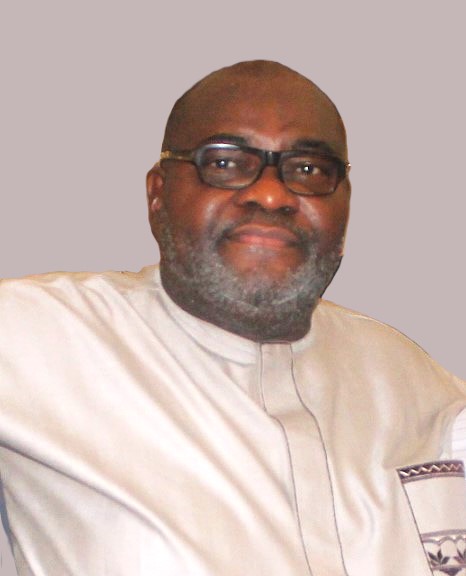
BY BOLAJI AFOLABI
Poring over countless title-ideas for this article, the above emerged from the blues. Further checks about the subject confirmed the title as fit and proper. Describing Tunde Olusunle as a “prodigious wordsmith” is no exaggeration. In every of his work, he comes across as one who has vocabulary virtuosity, and endowed with narrative mastery. He displays unimaginable linguistic dexterity which is intertwined with rhetorical flair, and imbued with creative vision. He carves the right words, and descriptive styles to paint beautiful scenery of complex and cumbersome situations. He crafts, engages, and suspends readers till the last words are happily soaked in. So, the title is both deliberate and intentional.
Dr. Tunde Olusunle, an Adjunct Professor of Creative Writing at the University of Abuja; which was recently re-named Yakubu Gowon University, is a man of many parts. He is a celebrated journalist; author; poet; communicator; and public speaker. Thus, he fits into all the fields where intellect, elucidation, and erudition coalesce. As a Columnist and Editor, he rose to the top of Journalism. In Literature, aside from having degrees, he has many published (and yet to be published) poems. He has written, co-written, edited, and co-edited over a dozen books; earning the Fellowship of the Association of Nigerian Authors, (FANA). In the last few years in academia, he is making exceptional accomplishments as a scholar, teacher, and researcher nurturing and mentoring a new generation of creative writers.
Sometime in the ’90s; during the Late General Sani Abacha regime, the writer went to the Saka Tinubu, Victoria Island, Lagos office of an elder brother; Ade-Ralph Olamife. After late lunch at the classy canteen within the precincts of the Nigeria Telecommunications Limited, (NITEL) offices, the host extended an invitation. He said, “I want you to join me later today to meet a friend coming from Ikeja.” About 7 pm, we (Olamife, two other friends, and the writer) drove into Bishop Oluwole Street in Victoria Island, Lagos. The building was the Kogi state Liaison Office at that time. Surprisingly, the august friend, who came with another person was already seated. After the exchange of pleasantries, the subject of this article was introduced by Olamife. Olusunle, who came with Alhaji Hakeem Bello; later Media Adviser to Babatunde Raji Fashola, (SAN), interacted freely with everyone. During the over two hours sit-out, Olusunle came across as a witty, lively, intelligent, and brilliant personality.
After this first meeting, the writer; through Olamife had subsequent interactions with Olusunle in Ikeja, Maryland, Ikoyi, and Victoria Island areas of Lagos. On every occasion, he exudes confidence and accessibility just as his humble and humane attributes come alive. After over a year of gap, largely due to the analogue communication state, and his relocation out of Lagos, Olamife broke the cheering news of Olusunle’s appointment as the Chief Press Secretary to the Kogi state Military Administrator; Col. Paul Omeruo. A few months later, the writer accompanied (as usual) Olamife; to visit Omeruo in Lokoja. By the way, both Olusunle and Olamife are mutual friends to the Administrator, fondly referred to as PUNO; initials of his names. During the two-week visit, Olusunle was the perfect host; he made every evening eventful and memorable. From discussions, many civil servants spoke glowingly about him. In and around the Lugard House; Administrator’s residence and office, as well as Ministries, Departments, and Agencies, (MDAs), his interpersonal relationships were eulogized. Succinctly, he could be described as a people’s man.
With the birth of democracy in May 1999, and the inauguration of Chief Olusegun Obasanjo as the President and Commander in Chief of Nigeria, the writer partially relocated to Abuja, hoping to explore opportunities in the new government. Watching the Nigerian Television Authority’s flagship news, the advert inviting people to the official launch of the new administration’s “Campaign for National Rebirth” sounded interesting. The writer made his way to the purposely-built Eagle Square venue of the event. As the programme progressed, the presence and importance of Olusunle was very evident. Events over, the writer swiftly moved from the stands down the platform to offer salutations to him. Pushed, shoved aside by over-zealous security operatives, it was a herculean task. At the point of giving up, an incident happened which diverted the attention of almost everyone. Leveraging on this, the writer made his way to the dais. Standing before Olusunle, he called the writer’s name, hugged, and exchanged pleasantries. Quickly, he said, “I’ll be out of Abuja for one week, meet me at Sheraton Hotels next week please.”
The writer’s visit to Sheraton Hotels marked the beginning of a relationship that has grown in leaps and bounds. Either at the Hotel’s Papillon Restaurant or the Poolside Bar, and Nicon Noga (now Transcorp) Hilton Hotel, the compassionate, empathetic, and accommodating attributes of Olusunle always come to the fore. They were unmistakable and unequivocal. During one of the numerous visits, he requested for the writer’s curriculum vitae; without saying what he wanted to do with it? It was discovered, early that he loves working behind the scenes. Beneficiaries of his advocacy, and benevolence only get to know when “food don done for eating.” One recalls on a visit to his 7th floor, Sheraton Hotels “temporary official residence” he beckoned on the writer to accompany him to somewhere. In a few minutes, we were in one of the suites at the Hilton Hotel, only to see Chief Onyema Ugochukwu, emeritus journalist, and public administrator walked in. With shock, suspense, and excitement written on one’s face, Olusunle introduced the writer saying, “Oga, this is one of our younger but silent supporters.”
A few months later, the import of that visit came to light. Through the persistent advocacy, and resilient prodding of Ugochukwu and Olusunle, President Obasanjo gave approval for major recruitments to strengthen the rebirth campaign, and public affairs management of the new government. So, the writer and other people benefitted from a forward-thinking proposal that was primarily targeted at media professionals who were part of the Obasanjo presidential campaign organization. Pastor Tumo Ojelabi, a retired Federal Director who was one of the beneficiaries declared that, “Oga, is a fastidious personality, a determined helper who can be positively stubborn, and dogged when pursuing a course that he has strong conviction about.” Continuing, Ojelabi, who was the official Photographer to Obasanjo during the presidential campaign said, “but for his resilience, courage, and never-quiver spirit; and Oga Ugochukwu, many of us who toiled during the campaigns would have been left dry.” For Mr. Taiwo Akinyemi, who was Obasanjo’s campaign Official Videographer, “Olusunle is a fighter; a dynamic fighter for other people. When he realized that politicians who did not contribute much to Baba’s electoral success were getting their loyalists into the new government, he fought relentlessly for us all. God used him to get me employed in the federal civil service, I remain eternally grateful.”
Olusunle is a pan-Nigerian, totally detribalized, and not given to ethnicity, religious segregation and similar stereotype. Described by close friends as diligent, dedicated, and devoted to friendship, Olusunle remains a restless and tireless quester for knowledge and new challenges. Given his multi-dimensional, and multi-tasking skills and proficiencies, he can excel in whatever profession, assignment, and position. Energized by his voracious search for new ideas, he is almost, always thinking out of the box. Very ingenious, creative, and imaginative, one recalls few initiatives that came from his fertile mind during the Obasanjo presidency. Persistent encouraging words about Nigeria’s sports which led to the inclusion of the “sports brief” to his schedules. Advocacy for the hosting of the Commonwealth Heads of Government Meeting, (CHOGM) at any of the nation’s resorts; which informed him leading a team of journalists, tourism experts, and bureaucrats to the Yankari Games Reserves in Bauchi. What about the National Media Tour, though initiated by him but hijacked by a few top government officials who at the end muddled the entire programme?
Corroborating, Mr. Vincent Oyefeso, a retired Federal Director, and another beneficiary of the Obasanjo appointments approval, said, “he is an illustrious Nigerian and a patriot per excellence, who bestrides many walks of life as an intellectual collossus, a humanist of no mean hue, and an advocate of the finest social ethos. At the realms of public communications, the academia, and public service, he exudes the best practices worthy of emulation by right-thinking compatriots.” For Mr. Ukadike Uwabor, a media communications consultant, “since I’ve known him, he has remained consistent with the core values of excellence, versatility, and intellect. He relates perfectly with different people no matter the age, religion, tribe, or social status. Little wonder his friends cut across different strata of the society. That the people of Umukabia autonomous community in Abia state conferred on him a chieftaincy title; which is outside his geographical, ethnic, and linguistic zone speaks volumes about his personality.” Olusunle by the way, has few other titles bestowed on him in different parts of the country.
Agreed, no human being is perfect but the writer has personal experiences about Olusunle that remains nostalgic. Indeed, the over two decades relationships have grown from one stage to the other. From boss to teacher, mentor, and motivator. He has played (and continues to play) different roles in one’s professional development, and career progression. Perhaps, he may not realize this; while working with him, Olusunle doesn’t attend meetings alone. The writer, Late Alhaji Wasiu Anjous, and (on few occasions) Akinyemi accompanied him to any meeting, particularly with MDAs. Another striking feature was that he introduced you as a “colleague.” With that, one’s stock, respect, and recognition increases. One of the fall-out of such remarkable style happened at the 2004 Olympics Games in Greece, when Late Mr. Solomon Matankari, Nigeria’s Chef de Mission, and Sports Ministry’s Permanent Secretary insisted on the participation of Anjous and the writer in high-level meetings.
Not persuaded by the hierarchical structure of the civil service, Olusunle places premium on availability, delivery, and consistency. Just a few months after being deployed to his office, the writer had a baptism of fire. Barely 48 hours after one of the regular presidential chats, Olusunle passed the recorded tape, and declared, “do transcribe and deliver in three days.” Sensing shock, and surprise, he encouraged, “you can do it, go at your pace.” On another occasion, a few days after commending the writer on a piece, “From Saw Dust To The Skies,” he said, “write a speech for Dr. Mrs. Kema Chikwe, the Aviation Minister, for a programme this Saturday to be held in Garki, Abuja.” Though tough but exciting, it marked my entry into the exclusive class of speech writers; till this moment. Sometime in 2023; after long hiatus from opinion writing, due to a new assignment at the National Assembly, the writer did a piece. Impressed, Olusunle called immediately, “BJ, I’ve just read your brilliant article. I encourage you to make this more regular, please. I’m available to offer any support where and when necessary.” Truly, he has kept faith to his promise in the over thirty articles written between December 2023 and now.
This is the man we are celebrating today, and always. Olusunle is an extremely organized personality, whose writings and interventions are laced with irrefutable data, educative instances, and inspiring suggestions. When occasions demands, you can’t help but applaud his depth of knowledge, information reservoir, deep vistas, and un-ending capacity. Oyefeso prays that, “the Lord grants him peace as he steps into the sixth floor. The Father of Lights will continually uphold and uplift him from Glory to Glory in Jesus Name.” Mr. Jacob Zwings, aide to Director-General, National Orientation Agency added that, “Oga Tunde, in his own way has impacted positively on the lives of people. On the occasion of his Diamond jubilee, I pray that God will perfect everything that concerns him and his family.” Akinyemi declared that, “just as he has been a blessing to other people’s children, God will bless him, his wife, and children.” Uwabor believes that, “Enyi Oha has become a reference point to many people. The good Lord will grant him more years in good health as he age gracefully with abundance of all-round blessings.” Ojelabi affirmed that, “Olusunle is who he is today; an accomplished man who stands tall among his peers because of his commitment towards extending helping hands to those who needs it.”
* BOLAJI AFOLABI, a Development Communications specialist was with the Office of Public Affairs, The Presidency, Abuja.
Opinion
PROFESSOR HUMPHREY NWOSU: THE UNSUNG HERO OF TRUE NIGERIAN DEMOCRACY
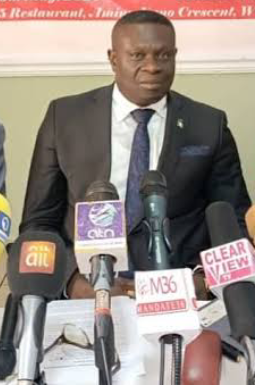
Written by Dr. Nwambu Gabriel,Director General, Centre for Credible Leadership and Citizens Awareness
Introduction
The journey to democratic governance in Nigeria has been fraught with challenges, conflicts, and untold sacrifices. Among the gallant figures who stood resilient in the face of adversity was Professor Humphrey Nwosu. As we mourn the loss of a remarkable leader and an indomitable champion of democracy, we reflect on his contributions and unwavering commitment to the electoral process, which laid a foundational path for Nigeria’s democratic practice.
A Visionary Electoral Leader
Professor Nwosu’s tenure as Chairman of Nigeria’s National Electoral Commission (NEC) from 1989 to 1993 marked a pivotal era in the nation’s electoral history. Unlike many of his contemporaries, Nwosu approached his responsibilities with an unwavering resolve to uphold the sanctity of the electoral process. He successfully organized several elections, including Local Government Chairmanship, Governorship, and State and National Assembly elections, which were lauded for their transparency and fairness. His most significant achievement came with the conduct of the June 12, 1993, presidential elections, widely regarded as one of the freest and fairest elections in Nigeria’s history.
Courageous Stand Against Adversity
In an environment characterized by military interference and political manipulation, Nwosu exemplified courage. He boldly overturned a court order issued on June 10, 1993, that sought to halt the presidential elections. Despite facing intense pressure from the military establishment led by Ibrahim Babangida (IBB), he remained resolute, emphasizing his commitment to ensuring that the elections were conducted as planned. His insistence on completing his mandate, even when his commission was dissolved midway through the electoral process, is a testament to his integrity and dedication.
His unyielding stance culminated in the announcement of results from 29 out of 30 states in the June 12 elections. Although General Ibrahim Babangida annulled the elections before Nwosu could declare the final results, his steadfastness demonstrated his belief in the democratic process and the necessity of honoring the voice of the Nigerian electorate.
Championing Democracy Through Documentation
Professor Nwosu did not allow the annulment of the June 12 elections to silence his voice. In his book, *Laying the Foundation of Nigeria’s Democracy: My Account of June 12, 1993 Presidential Election and Its Annulment*, he chronicled the events leading to the election and its aftermath. By publishing the results of the June 12 elections, he presented irrefutable evidence of MKO Abiola’s victory, reinforcing the notion that the people’s will should prevail over political machinations. This documentation serves as a historical account of a significant moment in Nigeria’s struggle for democracy and a rallying cry for future generations.
Legacy of Integrity
As we reflect on Professor Nwosu’s life and contributions, it is essential to recognize his legacy of integrity, bravery, and unwavering commitment to democratic principles. He stood as a beacon of hope during a tumultuous period in Nigerian history, proving that one individual’s resolute stand could indeed lead to monumental change. His story serves as an inspiration to current and future leaders to prioritize the will of the people over personal or political gain.
Conclusion
The passing of Professor Humphrey Nwosu is not just a loss to his family and friends but to a nation that desperately needs champions of democracy. His actions during the critical moments of June 12, 1993, solidified his place in history as a true man of democracy. As we commemorate his life, we are reminded that democracy thrives through the courage and integrity of individuals like Professor Nwosu—those who are willing to stand firm against oppression and ensure that the voice of the people is heard.
May his soul rest in peace, and may his legacy continue to inspire generations to uphold the values of democracy, transparency, and justice in Nigeria.
-
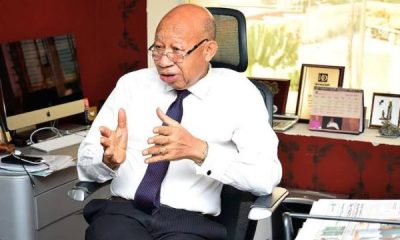
 News12 hours ago
News12 hours agoJust in: Founder of Diamond Bank and ex-chairman of MTN, Paschal Dozie is dead
-

 News18 hours ago
News18 hours agoRainfall washes away newly constructed multi-million naira road in Edo State
-

 News2 hours ago
News2 hours agoOERAF held memorial lecture on conflict resolution, security/safety of community in Nigeria
-

 News18 hours ago
News18 hours agoEvangelist Kekere Jesu buried amidst deep sorrow
-
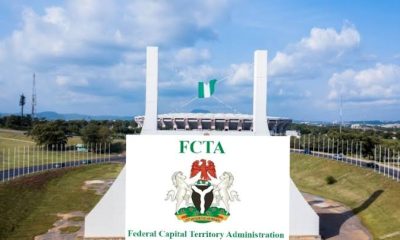
 Metro19 hours ago
Metro19 hours agoStray bullet from VIP convoy kills bystander in Abuja
-

 News7 hours ago
News7 hours agoTRADE WAR! U.S. angry over Nigeria’s import ban on 25 products
-

 News13 hours ago
News13 hours agoNaira Nosedives Against Dollar
-

 Sports12 hours ago
Sports12 hours agoReal Madrid keeping tabs on Victor Osimhen


